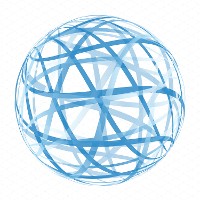Integrated Solutions for Water, Energy, and Land (ISWEL)
The International Institute for Applied Systems Analysis (IIASA) in partnership with the Global Environment Facility (GEF), and the United Nations Industrial Development Organization (UNIDO) is leading the Integrated Solutions for Water, Energy, and Land (ISWEL) project. The main project goal is to explore cost-effective solutions to jointly meet water, land and energy demands under different development and climate pathways. The project takes a global approach, but it also zooms into two large transboundary basin facing multiple developments and environmental challenges: The Zambezi and the Indus.
To achieve its goal, ISWEL is structured around three main components. The first component deals with the development of an integrated nexus assessment framework suitable for rigorous analysis of potential interactions, synergies, and trade-offs between water, energy and land resources and under different future climate and development scenarios. This framework will integrate and link four different IIASA open source models: ECHO, CWAT, MESSAGE, and GLOBIOM, which will be upgraded to better represent the linkages between the energy-, hydro- and agro-economic systems at the global and basin level.
The second component is focused on the assessment of nexus solutions across scales. To this end, the integrated nexus assessment framework will be used to identify multi-sectorial scarcity hotspots and assess the synergies and trade-offs among sectors and countries. This information will be used for distilling portfolios of integrated solutions for water, energy, and land under different climate and socio-economic development pathways, at the global and for the two basins.
Engaging with stakeholders is one of the distinct features of ISWEL to ensure that project outcomes are useful for decision-making and contribute to the development of nexus research and management capacities. Within this component, a number of workshops and consultations are planned to engage with a wide number of actors from different sectors and riparian countries, to identify main challenges in relation to water, energy, and land; providing feedback and data for improving tool development and effectiveness, support the co-development of policy scenarios, and how these might evolve under different development and climate pathways. Lastly, efforts within the component will be also allocated to support the development of nexus capacities within the basins. This will be done through a number of activities, including the sponsoring of research grants for doctorate students from the riparian countries, and the development of an online tool that will allow stakeholders to explore water, energy and land inter-linkages and the synergies and trade-offs behind sectorial versus joint decisions.


Research Programs involved
ISWEL EVENTS
Knowledge sharing and stakeholder engagement in the Indus Basin
21 Aug 2019 - 24 Aug 2019
I Stakeholder Workshop in the Indus Basin
23 Mar 2018 - 26 Mar 2018
I Stakeholder Workshop Zambezi Basin
25 Sep 2017 - 26 Sep 2017


